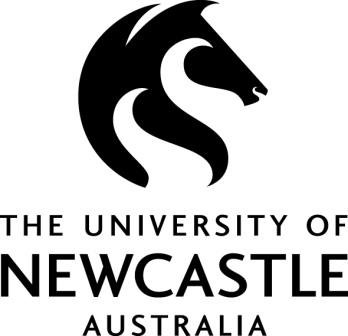Scientists recognised for their work in improving disaster resilience
Three exceptional young scientists have been recognised for their work in improving disaster resilience in the Asia-Pacific region.
 The University of Newcastle’s Dr Hannah Power was one of three finalists in the national search to find an Australian nominee for the APEC Science Prize for Innovation, Research and Education (also known as the ASPIRE Prize).
The University of Newcastle’s Dr Hannah Power was one of three finalists in the national search to find an Australian nominee for the APEC Science Prize for Innovation, Research and Education (also known as the ASPIRE Prize).
The 2015 ASPIRE Prize theme is Disaster Risk Reduction, something that Dr Power, a lecturer in the School of Environmental and Life Sciences at UON has as a focus. Dr Power’s research focuses on the processes and morphology of coastal environments—with a recent focus on project-modelling tsunami inundation in New South Wales waterways.
APEC is a valuable forum for engaging with the Asia-Pacific region, and the Aspire Prize highlights elite scientific talent.
One of three nominees, Dr Power was chosen from a highly competitive field and was runner up to Macquarie University’s Dr Katharine Haynes—who will be Australia’s successful nominee to the 2015 ASPIRE Prize. Dr Haynes was recognised for her work in community and youth-based disaster risk reduction and communication and for using science to improve policies and organisational procedures.
Her research has spanned the full gamut of natural disasters, including bushfires, heatwaves, cyclones, floods, tsunamis and volcanic eruptions. She has also collaborated with academics and emergency management practitioners from other APEC economies including Indonesia, Japan, New Zealand, the Philippines and the US.
 Since 2011, the annual ASPIRE Prize has recognised scientists under the age of 40 who are working in APEC economies and who have demonstrated a commitment to excellence in scientific research and cooperation with scientists across other APEC economies.
Since 2011, the annual ASPIRE Prize has recognised scientists under the age of 40 who are working in APEC economies and who have demonstrated a commitment to excellence in scientific research and cooperation with scientists across other APEC economies.
University of Newcastle School of Environmental and Life Sciences
The School of Environmental and Life Sciences within the Faculty of Science and Information Technology at the University of Newcastle is made up of six disciplines which includes applied sciences, biology, chemistry, earth sciences, geography and environmental studies and environmental science and management. The school is highly research active in the above discipline areas, with a focus on developing research and teaching skills that encourage critical thinking and problem solving strategies across all of their degrees.
Macquarie University Graduate School of the Environment
The Graduate School of the Environment at Macquarie University offers a wide range of degrees and courses to choose from that combine the natural and social sciences and develop intellectual, professional and practical skills. Students can choose between papers that develop critical thinking skills through exposure to theory and philosophy; field-based papers that develop research skills; and practical papers that develop professional skills through accredited coursework and industry internships. Macquarie environmental science graduates pursue careers oriented toward ecologically sustainable development via institutional and social change.
*

































Ask A Question
Ask us about your program of interest, or if you have a question about our services.
CONTACT US TODAY